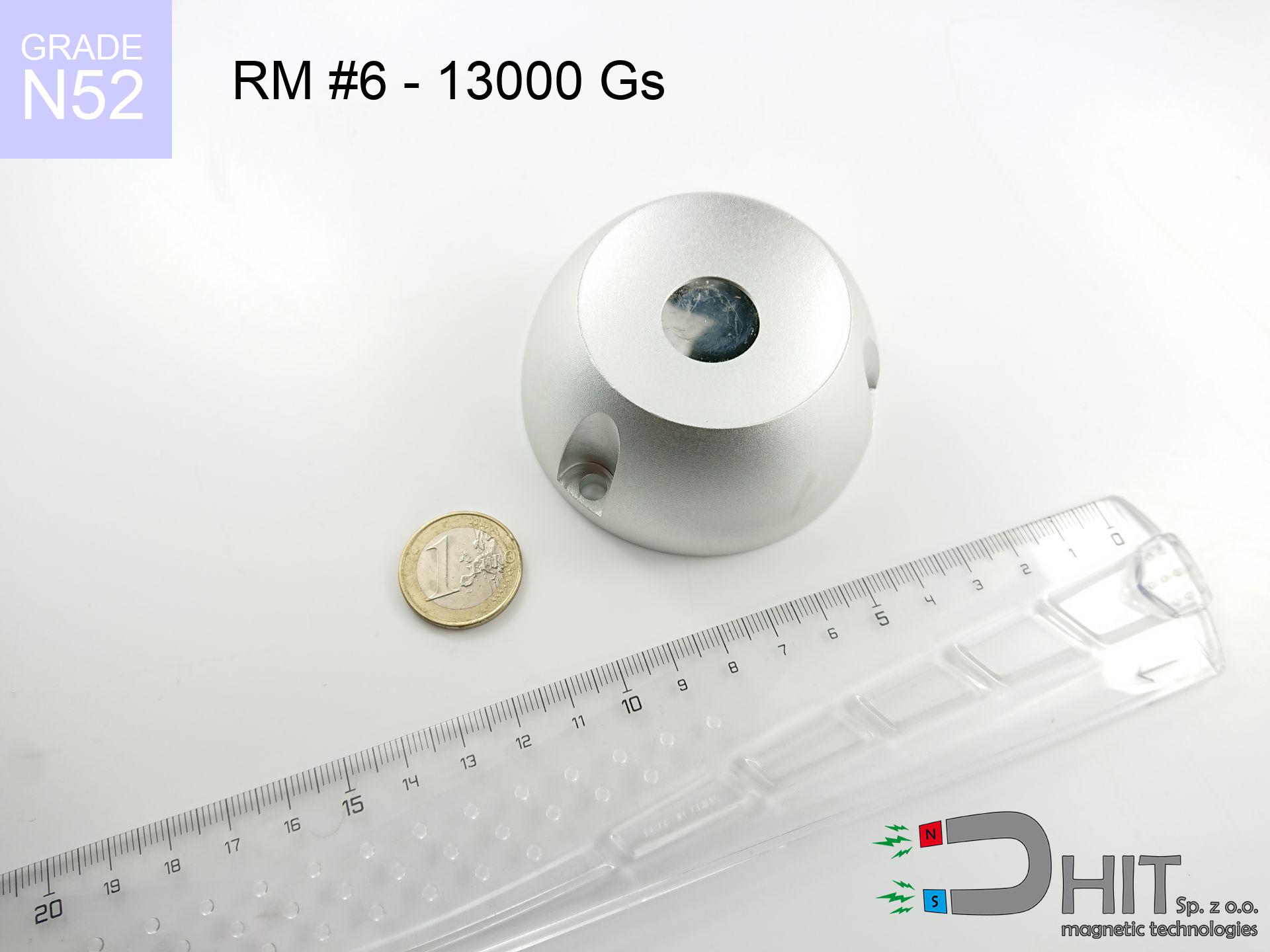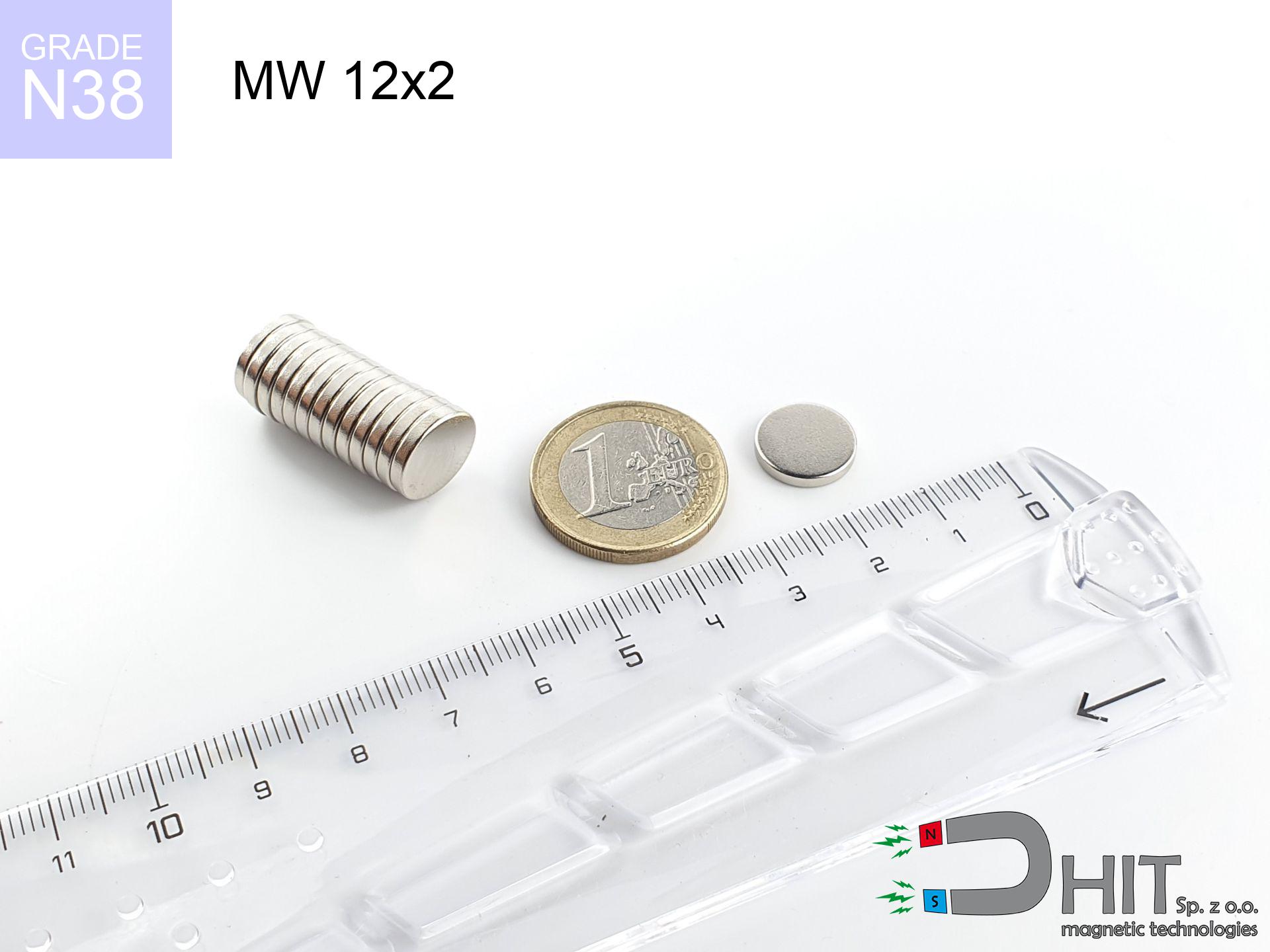BM 950x180x70 [4x M8] - magnetic beam
magnetic beam
Catalog no 090225
GTIN/EAN: 5906301812609
length
950 mm [±1 mm]
Width
180 mm [±1 mm]
Height
70 mm [±1 mm]
Weight
61000 g
8564.49 ZŁ with VAT / pcs + price for transport
6963.00 ZŁ net + 23% VAT / pcs
bulk discounts:
Need more?
Pick up the phone and ask
+48 22 499 98 98
alternatively get in touch via
form
the contact form page.
Force along with structure of neodymium magnets can be tested with our
online calculation tool.
Same-day processing for orders placed before 14:00.
Product card - BM 950x180x70 [4x M8] - magnetic beam
Specification / characteristics - BM 950x180x70 [4x M8] - magnetic beam
| properties | values |
|---|---|
| Cat. no. | 090225 |
| GTIN/EAN | 5906301812609 |
| Production/Distribution | Dhit sp. z o.o. |
| Country of origin | Poland / China / Germany |
| Customs code | 85059029 |
| length | 950 mm [±1 mm] |
| Width | 180 mm [±1 mm] |
| Height | 70 mm [±1 mm] |
| Weight | 61000 g |
| Manufacturing Tolerance | ±1 mm |
Physical properties of sintered neodymium magnets Nd2Fe14B at 20°C
| properties | values | units |
|---|---|---|
| Vickers hardness | ≥550 | Hv |
| Density | ≥7.4 | g/cm3 |
| Curie Temperature TC | 312 - 380 | °C |
| Curie Temperature TF | 593 - 716 | °F |
| Specific resistance | 150 | μΩ⋅cm |
| Bending strength | 250 | MPa |
| Compressive strength | 1000~1100 | MPa |
| Thermal expansion parallel (∥) to orientation (M) | (3-4) x 10-6 | °C-1 |
| Thermal expansion perpendicular (⊥) to orientation (M) | -(1-3) x 10-6 | °C-1 |
| Young's modulus | 1.7 x 104 | kg/mm² |
Material specification
| iron (Fe) | 64% – 68% |
| neodymium (Nd) | 29% – 32% |
| boron (B) | 1.1% – 1.2% |
| dysprosium (Dy) | 0.5% – 2.0% |
| coating (Ni-Cu-Ni) | < 0.05% |
Environmental data
| recyclability (EoL) | 100% |
| recycled raw materials | ~10% (pre-cons) |
| carbon footprint | low / zredukowany |
| waste code (EWC) | 16 02 16 |
Other proposals
Pros as well as cons of neodymium magnets.
Pros
- They do not lose magnetism, even after around 10 years – the decrease in power is only ~1% (theoretically),
- They are resistant to demagnetization induced by external magnetic fields,
- Thanks to the reflective finish, the surface of Ni-Cu-Ni, gold-plated, or silver gives an professional appearance,
- Magnets are characterized by huge magnetic induction on the surface,
- Thanks to resistance to high temperature, they can operate (depending on the shape) even at temperatures up to 230°C and higher...
- Possibility of precise machining and adjusting to specific needs,
- Universal use in advanced technology sectors – they serve a role in magnetic memories, drive modules, precision medical tools, also multitasking production systems.
- Relatively small size with high pulling force – neodymium magnets offer high power in small dimensions, which allows their use in miniature devices
Weaknesses
- At strong impacts they can crack, therefore we recommend placing them in steel cases. A metal housing provides additional protection against damage, as well as increases the magnet's durability.
- Neodymium magnets decrease their strength under the influence of heating. As soon as 80°C is exceeded, many of them start losing their force. Therefore, we recommend our special magnets marked [AH], which maintain stability even at temperatures up to 230°C
- Due to the susceptibility of magnets to corrosion in a humid environment, we suggest using waterproof magnets made of rubber, plastic or other material stable to moisture, when using outdoors
- Due to limitations in creating threads and complex shapes in magnets, we propose using cover - magnetic mechanism.
- Health risk resulting from small fragments of magnets are risky, in case of ingestion, which becomes key in the context of child safety. Furthermore, small elements of these devices are able to complicate diagnosis medical after entering the body.
- Higher cost of purchase is a significant factor to consider compared to ceramic magnets, especially in budget applications
Holding force characteristics
Best holding force of the magnet in ideal parameters – what it depends on?
- using a sheet made of low-carbon steel, serving as a ideal flux conductor
- possessing a massiveness of at least 10 mm to ensure full flux closure
- with an polished contact surface
- with zero gap (no impurities)
- for force applied at a right angle (pull-off, not shear)
- at ambient temperature room level
Practical lifting capacity: influencing factors
- Air gap (betwixt the magnet and the plate), because even a tiny clearance (e.g. 0.5 mm) results in a reduction in lifting capacity by up to 50% (this also applies to paint, corrosion or debris).
- Direction of force – maximum parameter is obtained only during perpendicular pulling. The resistance to sliding of the magnet along the surface is standardly many times lower (approx. 1/5 of the lifting capacity).
- Base massiveness – too thin plate does not accept the full field, causing part of the power to be escaped to the other side.
- Metal type – not every steel reacts the same. Alloy additives weaken the interaction with the magnet.
- Plate texture – ground elements ensure maximum contact, which improves field saturation. Rough surfaces weaken the grip.
- Thermal environment – temperature increase causes a temporary drop of induction. Check the maximum operating temperature for a given model.
Lifting capacity testing was carried out on plates with a smooth surface of optimal thickness, under perpendicular forces, however under attempts to slide the magnet the holding force is lower. Additionally, even a small distance between the magnet and the plate reduces the lifting capacity.
Safe handling of NdFeB magnets
Flammability
Machining of neodymium magnets carries a risk of fire hazard. Magnetic powder reacts violently with oxygen and is hard to extinguish.
Protective goggles
Protect your eyes. Magnets can explode upon violent connection, ejecting sharp fragments into the air. Eye protection is mandatory.
Choking Hazard
Product intended for adults. Tiny parts pose a choking risk, causing intestinal necrosis. Store out of reach of children and animals.
Hand protection
Large magnets can crush fingers instantly. Do not put your hand between two strong magnets.
Cards and drives
Powerful magnetic fields can erase data on payment cards, HDDs, and other magnetic media. Stay away of min. 10 cm.
Keep away from electronics
Remember: neodymium magnets generate a field that interferes with precision electronics. Keep a separation from your phone, device, and GPS.
Handling rules
Handle magnets with awareness. Their immense force can surprise even experienced users. Be vigilant and respect their force.
Health Danger
For implant holders: Powerful magnets affect medical devices. Maintain at least 30 cm distance or ask another person to work with the magnets.
Maximum temperature
Watch the temperature. Exposing the magnet to high heat will ruin its properties and pulling force.
Allergic reactions
Certain individuals have a sensitization to Ni, which is the common plating for NdFeB magnets. Frequent touching may cause a rash. It is best to wear protective gloves.

![Plate separator BM 950x180x70 [4x M8] Plate separator BM 950x180x70 [4x M8]](https://cdn3.dhit.pl/graphics/banners/magnet.webp)
![BM 950x180x70 [4x M8] - magnetic beam](https://cdn3.dhit.pl/graphics/products/bm-950x180x70-4x-m8-ves.jpg)

![UMP 94x28 [3xM10] GW F300 GOLD / N38 - search holder UMP 94x28 [3xM10] GW F300 GOLD / N38 - search holder](https://cdn3.dhit.pl/graphics/products/ump-94x28-m10-gw-f300-vux.jpg)



